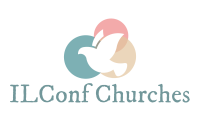Observing, better understanding and controlling electricity consumption from a distance is the objective of smart grids. The installation of smart meters is the first step in this technological revolution towards a smart grid.

More and more people believe in IT serving the electricity distribution network. The United States has even provided an envelope of 4.5 billion dollars as part of the recovery plan to develop computer technologies for the electrical network: the “ smart grids ”. This set of IT technologies aims to optimize the distribution of electricity between producers and consumers. From smart electric meters to sensors connected to a computer network, these technologies have one objective: to promote energy efficiency and reduce energy consumption. The smart grid would also make it possible to integrate renewable energies, to manage them and to inform producer, distributor and consumer on the use of energy. The use of Solar Energy comes perfectly there.
Optimizing electricity production and consumption
In Europe and especially in France, the electricity transmission and distribution networks have been designed centrally. In fact, our electricity production and distribution system are dictated by one principle: maintaining a balance between demand and supply. The smart grid should allow better adjustment of electricity production and consumption. By improving knowledge of electricity consumption using smart meters, it would be easier to avoid consumption peaks and failures due to overload.
- The management of electricity consumption would be managed intelligently. For example, during hours when consumption is reduced, you could take advantage of the electricity produced to charge your electric car. The consumer would be informed by remote management about the best time to run a machine. Or, a company could optimize its electricity consumption. In this model, the consumer actively manages their energy consumption: Smart grids are a real revolution in the energy sector.
- This will allow consumers to transform their relationship with their electricity supplier and change their behavior, analyze Jean-Marc Ollagnier, general manager Europe of Accenture’s energy activity. Smart meters provide useful information to the end consumer. This allows him to better understand what he consumes and to make decisions to change his consumption. On the producers’ side, this allows them to better manage production, identify consumption peaks and avoid them. It is estimated that smart meters could reduce consumption by 5 to 10%.
The European Commission also recommends that by 2020, 80% of homes be equipped with smart meters in order to implement the commitments of the Climate Energy Package. According to a study by Capgemini, 6% of European households would be equipped with smart meters today, 25 to 40% would be in 2012. Some countries like Sweden or Italy are ahead of the others: almost all homes would already be equipped with smart meters.
Another challenge for tomorrow’s electricity networks: assimilate intermittent electricity production. The development of renewable energies, decentralized sources of electricity production, is often hampered by the inadequacy of these means of production with the functioning of the current network. Intermittent energy production is indeed difficult to integrate into the network and does not correspond to peak consumption periods. The electricity produced is then lost, which cannot be stored.

